More than 6,000 Boston.com readers weighed in on student loan forgiveness, and they’re widely split
"Do our five children each get a $50k check/credit for not incurring student loans?"
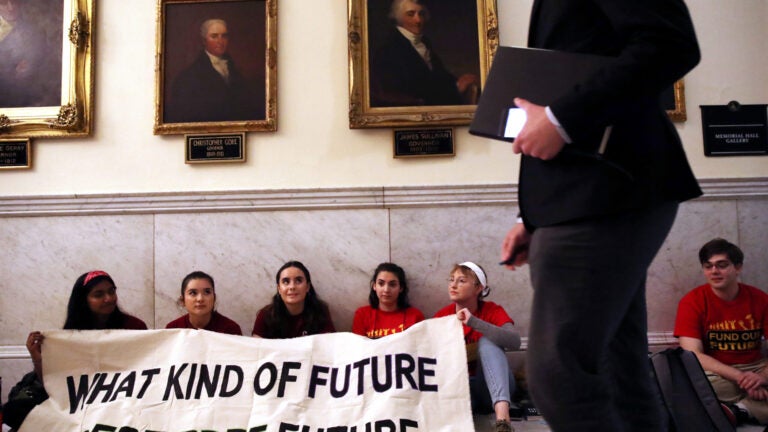
Related Links
It seems President Joe Biden and the more progressive wing of his Democratic party aren’t the only ones at odds over student loan debt forgiveness. More than 6,000 Boston.com readers weighed in on our survey about the issue, and they didn’t exactly see eye to eye.
Biden, who has proposed supporting legislation that would eliminate up to $10,000 in student loan debt per borrower, has been persistently hammered by Sen. Elizabeth Warren, Rep. Ayanna Pressley and other lawmakers to instead eliminate up to $50,000 in debt via executive order. They argue it would bolster the economy during the COVID-19 pandemic, and that it’s also an issue of racial and economic justice, given that a lack of opportunity has forced Black and Latinx students to take on student debt at a greater rate.
But it’s also a highly polarizing issue, particularly among those who’ve managed to pay off their loans, or gone to great lengths to avoid incurring them. That would explain the 37% of readers who responded, “No, don’t take any action: It’s unfair to people who paid their own way.”
“Forgiveness of student loan debt is fundamentally unfair, unsustainable and only addresses the symptoms, not the underlying problems,” responded Jay from Raynham, while Anna from Waltham declared, “In order to be fully functioning adults in society we must be responsible for the consequences of our choices. Loan forgiveness is the wrong tactic here as it teaches people that their mistakes can be washed away by government.”
But 30% of respondents were adamantly in favor of the $50,000 forgiveness proposal, many of them arguing that more recent students had been sold a bill of goods when they took out their loans, and that — unlike in years past — society has stopped holding up its end of the bargain when it comes to the benefits of a college degree.
“The false promise of financial security once one has a degree … is causing a whole generation of people to feel like indentured servants,” said one reader, with another asking, “We continue to suffer because those before us have suffered, what sense does that make? Break the cycle and give the younger generation a chance to be better and live that life we were expected to live!”
Another 14% backed Biden’s proposal to lobby for legislation forgiving just $10,000, while 13% came out in favor of eliminating loan interest only. And 5% chose “Other,” offering suggestions including forgiving $20,000 per borrower; eliminating all student debt, no matter what the amount; and allowing for refinancing at low interest rates.
Meanwhile, more than 800 Boston.com readers provided written responses with compelling arguments on all sides. Here’s a small sampling of what they had to say.
Responses have been edited for length and clarity.
In favor of debt forgiveness
“I know of graduates who could not get jobs in their chosen fields. They are working to pay school loans, living with parents, and hope to continue their education to hopefully get a career that will allow them to move out, rent or buy. These kids will never get ahead without this loan forgiveness.”
“If we can give millionaires, billionaires and wealthy corporations loads of free money, we sure as heck can do it for everyday people. I personally will not benefit from this, nor will any immediate family member, and I am still in favor of investing in everyday Americans over corporations. Trickle down does not work!” — Christine, Holbrook
“As someone who has steadily been paying her student loans for the past 15 years, I can not even begin to understand how people can afford to pay their loans if they have graduated within the past 5-10 years. The cost of college, the false promise of financial security once one has a degree, literally it is causing a whole generation of people to feel like indentured servants. All for doing what their parents and grandparents requested, to get a college education.”
“Student loans are a burden on a generation and are disproportionately impacting families of color. Instead of bailing out the wealthy, we need to bail out the people.”
“Some people did not end up with their degree for reasons beyond their control. Or the schools they went to were dishonest. So, they never got the opportunity to go out and make the money with that degree.” — Melissa, Roslindale
“My daughter currently attends a private university and will graduate with $80-90K in student loans. I have seen that students should look to state universities to decrease overall costs and debt. My daughter applied and was accepted to UMass-Amherst, which would have reduced her student debt to approximately $70-80K. So the state university system isn’t that much less expensive as compared to some private universities.” — Matthew, Leicester
“I graduated with $20K of loan debt in ’84; my children each have well over $50K of debt (from public colleges). Neither of them are making what I made in ’84 (in actual dollars, let alone inflation adjusted), and yet have more debt. Luckily I’ve been able to assist them but until income stagnation and crippling debt are addressed they will not be able to actively participate in this economy.”
“I grew up in low-income housing with immigrant parents. The mentality instilled in me growing up was if I go to college, I was guaranteed a well-paying job, period. Neither my parents nor myself knew how much colleges actually cost until college acceptances started coming in. My father couldn’t afford to pay most of the cost, as he was the only one working and had a low-paying job, so I had no choice but to take on federal loans. I was attending a very well-known, expensive school, because I was convinced by someone that employers would judge you based on where you attended college, and would prefer the candidate who attended a more top-ranked school. I know now that is far from the truth. Currently, I’m in debt, and I don’t have that well-paying job I was promised. I wish I could go back and do my college years over in order to not be in $101K debt. And frankly, $50,000 student loan forgiveness would help me so much right now.” — Cindy, Brighton
“I think it is terrible that we as parents in our late 50s have this kind of debt for our children’s education. I don’t think we will ever have this $50,000 Parent Plus loan paid off. My husband went from making $85,000 average a year, and is now making $20 an hour. He can’t even find a job in his field anymore since he is older and can’t seem to get offered a job in his field due to his age. This is seriously becoming a problem.”
“When confronted with a problem like national student loan debt crippling generations of younger people financially for the promise of a college education that ended up being a lie for a lot of people, it’s more important to find an actual solution to the problem. When you realize how bad the system is of predatory loans and inflated tuition costs coupled with a struggling economy or job market, the only solution is really to wipe it clean and start from scratch.”
“I often see people who went to school 30+ years ago comparing student loans with mortgages, as a means of arguing against student loan forgiveness. But mortgages are secured by property being purchased, whereas student loans are unsecured loans. This leads student loans to have interest rates that are 2-3 times as high as mortgages. Also, student loans aren’t dischargeable in bankruptcy, whereas mortgages are. This makes taking out huge student loans a mistake that can decimate your entire financial life, FOREVER, unlike a mortgage which can be discharged through a foreclosure and then subsequently removed from a credit report in the future.” — Andrew, Providence, R.I.
“I received a full scholarship to my private university and still had to take 70K in loans. Two years out of college and every penny I make goes to rent and loans.” — Megan, Boston
“As a first-generation college student, my siblings and I knew nothing about college or its costs. I delayed getting married and having a child until my loans were lower, but I am still paying. Even though the $50,000 would exceed the amount that I need, it would significantly help those who were also first generation students.” — Amie, Lynn
“We’re in the middle of a pandemic, and forgiving $50,000 in student loan debt can help millions of Americans. Biden talks about how much he wants to help — the middle class, the poor class, to have our backs. Right here is a way to help Americans, and help the American economy. The fact that this is even a debate is outrageous.” — Jon
“Student loan debt burden in the USA is an unsustainable burden on the entire economy. Many borrowers paid back sums near the principal, but are paying interest for decades. Newsflash: kids from ultra-rich families don’t take out loans. The feds loan money to banks for free. Writing off these loans will cost the feds next to nothing, but do a huge part for rebuilding American middle class.”
“Several generations of American students were sold a bill of goods on higher education being an investment in oneself and that they would realize a return over the course of career. What actually happened was rampant, unchecked increases in the cost of an education; in turn, this pushed students into larger and larger student loan agreements where the fiduciaries — colleges and universities — were not acting in the best interest of their clients — the students — sending them out into the working world with debt that far exceeded returns in the form of salaries. Essentially, higher education and government-backed student loan providers acted in a union of predatory lending.”
“Even state schools can easily get your debt to $20,000 and that’s only if you are able to commute. Millennials were pushed into going to school by the older generations and were told to go straight to a four-year if we wanted to be successful. Community colleges were frowned upon and made out to seem like only people who failed in high school took that route. Now we are in so much student debt we can’t even hit what would usually be ‘normal’ life milestones like buying a car, buying a house or even moving out of our parents’ house!”
“We continue to suffer because those before us have suffered, what sense does that make? Break the cycle and give the younger generation a chance to be better and live that life we were expected to live! A degree does not guarantee you a job, consideration for a job or financial security. It’s now just a piece of paper you sold your life for.”
“There is a lot of opposition towards forgiveness with the sentiment of ‘you take out the loan, you pay it back.’ I understand this viewpoint, however, what I think some people don’t understand is I’ve paid back almost half of what I’ve taken out and I still owe practically the whole thing. I am someone who was fortunate to graduate, go on to get a master’s that was paid for by my job and have a decent salary. I can’t imagine what people who are less fortunate or have worse credit than I do are doing.” — Olivia, Springfield
“Student debt has surpassed credit card debt as the biggest obstacle facing the next generation. It not only affects borrowers but also other sectors such as housing, financing and ultimately the birth rate as more people either put off the milestones of home ownership, marriage and starting a family. Cancelling the debt would have a large benefit to the economy, especially for borrowers of color. It is a necessary step to help get us back on track.”
“Massive student loan debt is hindering anyone under age 40 from starting a family, owning a home, buying a new car, and so much more. This was not an issue for generations before them, both due to a far lower cost of college, as well as a lack of higher educational requirements for most jobs. If we can give a trillion dollar tax cut to those who did not need one, we can give a different kind of tax cut to those who will actually benefit from it.” — Patrick, Fall River
“Those arguing that forgiving student loan debt is unfair to those who have repaid already is like saying just because you had chickenpox as a kid it isn’t fair that there is a vaccine now and kids shouldn’t be allowed to receive it. Utter ridiculousness.”
“There are plenty of people with 50K or greater debt who attended community colleges and state schools. It doesn’t take long to accumulate student loan debt if you spend any more than four years in school, attend any number of years of graduate school, or when you come from a family who can’t afford to pay for any of your school, yet makes just enough money that you can never qualify for grants. If you have paid off your student loans, that’s awesome that you were able to do that, and whatever sacrifices you made should be applauded, but this isn’t about you. This is about the current state of our country, the current climate we live in, how eliminating this amount of debt would change so many people’s worlds, giving them the ability to buy their first home instead of choosing between a mortgage and a student loan payment as high as a mortgage, or just maybe the ability to actually start putting away savings for their own children so that the cycle does not just repeat itself.” — Valerie
“I am a first generation college student. I had no choice but to take loans. Even with a master’s degree, extensive studying of negotiation for fair salary, I’ve had to grapple with people who saw a Black woman and lowballed me (less than $50K). I am currently in an entry-level job where I have a higher education than my manager — I’ve done everything possible to express interest in promotion but I’m always overlooked. So I’m stuck paying rent, paying my loans, I don’t own any property, and at this point I don’t think I ever will.”
“I believe it is imperative to recognize and highlight the appalling difference in tuition/ housing cost/cost of living etc. from the 1960s & 1970s to now. The cost increased over 100% and yet the people who are responsible/control of this cost inflation (legislators, lawmakers, comptrollers) benefited from the incredibly low prices of the 1960s & 1970s. I am not asking to have exactly what was received in the 1960s & 1970s, but give all of us — millennials, Gen Z, and Gen Alpha — a chance to create generational wealth too. To be homeowners, to have kids, to make a life worth living.” — Nakyanzi
“Huge equity issue! We need at least $50,000 in forgiveness to bring up those in lower socioeconomic classes. Student loan debt also disproportionately impacts people of color.”
“I went to a public university for my undergraduate degree and a public university for my graduate degree and now I have over $100K in debt. Obtaining a graduate degree nowadays is arguably what makes you a more attractive candidate in the work field and ensures your chances of a better future, especially if you are a minority.”
“I have been paying on my student loan for 15+ years. $5,000 has turned into $15,000+ over that time. It would be wonderful to have that forgiven now, as I am 63 and it has been hanging over my head for so many years.”
“I think there may be some people that would benefit from the program that have the means to pay their debt, but the majority of borrowers would feel a heavy weight lifted. I believe this is a great way to jumpstart the economy after the pandemic winds down because all of these students should be in a better position to get approvals for homes, cars, small business loans, etc.” — Julie
“An entire age bracket of American citizens were convinced that they had to attend private colleges if they wanted to get ahead in life. Loans were given out like candy to any and all that applied with the companies, and more importantly for this topic the federal government, doing nothing to regulate this process.”
Against debt forgiveness
“Forgiveness in any amount is unfair to all past students and many current students who either paid off their loans, didn’t receive loans, or won’t be eligible for forgiveness. These people knowingly signed legal documents that require them to pay the money back with interest.”
“Absolutely not! There are many people who have worked their asses off to pay their own way. Kids need to be taught that putting themselves in massive debt for a useless degree is not a good investment.”
“I was accepted to an Ivy League my family couldn’t afford, so I went to a state school that I could afford. It was the responsible thing to do. I could have made VP by now with the Ivy League degree on my resume.”
“Instead of loan forgiveness, our elected officials should attack the real problem, the cost of education. Colleges have billions of dollars in endowments, but we want the taxpayers to foot the bills.”
“Higher education costs have exploded and have significantly outpaced inflation well before COVID occurred. Forgiveness of student loan debt is fundamentally unfair, unsustainable and only addresses the symptoms, not the underlying problems.” — Jay, Raynham
“Weird… I was born into a lower middle class family, worked full time 6 days a week around my courses throughout college, deferred the gratitude of buying the latest/greatest material things, paid back every nickel I borrowed, kept working hard and have somehow magically been provided the opportunity to build wealth.”
“For those of us who chose to put money away in a 529 rather than go on vacations or spend money on other non-essentials, how would this be fair? Then again, I fully understand that there are a significant number of families who can’t afford vacations OR to save for college. There must be a way to make the initiative need-based but it is complicated.”
“I do not see anything addressing the high cost of education. Colleges now look like country clubs with high-end amenities. They also need to look at the administration-to-student ratios. There are too many Assistant-to-the Assistant-to-Assistant-to-the-Assistant to the Associate-Dean of Comparative Basket Weaving of Cave Dwellers.” — Steve, Jamaica Plain
“My issue is that folks who had federal student loans but made the smart financial decision to refinance are not eligible for any level of student loan forgiveness.”
“Don’t pursue a private college education with a major in creative writing, theatre, etc. I put myself through undergrad twice, have a BS in management from UMass and went back years later for a BSN degree. I did my research on student lending, live within my means, and continue paying my loans (even as the government suspended payments) as I promised to do.” — Kate, Hull
“I am in full support of loan forgiveness for students in exchange for service in low-paying fields/industries, but not for loan forgiveness across the board. Maybe instead, money should be allocated to offering robust financial management classes in high school so that students can understand what they’re getting themselves into before deciding to take out tens or hundreds of thousands of dollars in loans for a college degree.” — Megan, Boston
“Agreed this is a very polarizing issue with no one wanting to pay their student loans and yet for decades almost all of us have! It’s a slap in the face to people who have made sacrifices for years and who have forgone home purchases, marriages, kids, and even eating. As someone who personally made all of these sacrifices and more so I could become a doctor and give back, it’s appalling.”
“For Biden to try to declare student loan forgiveness would be a gross misuse of presidential power and not something he has the power to do. This decision should rest with Congress. Congress should push forward debt forgiveness to some degree if they don’t want our economy to continue to collapse, but it needs to be done in conjunction with taxes and plans to pay for it.” — Joe, Portland, Maine
“We live way below our means. Haven’t taken a vacation in years. Drive old cars with >100,000 miles. Don’t dress very well. Don’t go to expensive restaurants. We did this to help pay for our kids’ college so they can graduate debt free. Others did not make these sacrifices. Do our five children each get a $50k check/credit for not incurring student loans? Also, if you incurred $100K in debt and majored in art history at a private liberal arts college, and you can’t find a job to pay off your loans, that is on you.”
“Progressives seem to have no clue that the federal government’s involvement in student loans is the primary reason college tuition is so high. Get the government out of student lending, reduce the college bureaucracy, and costs will come down. Giving $50K to present debt holders will only exacerbate future college costs while punishing those of us who paid their debt. It is an outrageous proposal and indicative of the progressive mantra of answering problems caused by big government with even bigger government.”
“Provide tax credits to cover the debt service of low-earning college graduates. Debt forgiveness makes for a dark future and a bankrupt economy.” — Joe, Holliston
“My wife and I are 40. We have paid off around $65K in student loan debt while just now recovering from the 2008 housing crash. After the, literally, hundreds of thousands of dollars we paid off as school teachers, we now have to pay off everyone else’s debt so they can prosper. While I feel their pain, we haven’t had any relief. And our children have no shot at debt relief when they go to college.”
“We all have decisions that we make in life which have lasting impact. Some of those decisions, like going to college and taking out student loans, are made at a young age when we lack the wisdom to truly understand things, like the value of a dollar. This is no different than people who get married too young, have children too young, invest in the stock market and lose, etc. In order to be fully functioning adults in society we must be responsible for the consequences of our choices. Loan forgiveness is the wrong tactic here as it teaches people that their mistakes can be washed away by government and, even worse, it falls on the shoulders of others who made better choices or took responsibility for their debt to implement. It’s a sad world, to me, when this is a real path that’s even being considered.” — Anna, Waltham
“It is NOT right! I would have LOVED to have obtained my BS degree but knew as a single parent with two children to raise I couldn’t afford to repay a student loan. This is just one more example of people not being held responsible for their actions. No one forced these students to take out the loans. Hey, why don’t we pay off my home mortgage while you’re giving away money!” — Judith
No interest, and other compromises
“A limited amount of forgiveness for some based on income is fine — but do not help out the rich (families making over $200K is my definition).”
“The real issue is the predatory loan rates. What should be looked into by the government is to cover all interest incurred for student loans. If you borrow 10K you should give back 10K.”
“I think that all loans should be interest free going forward and that they should be made interest free retroactively. In other words, all payments go towards principal. This seems to strike the appropriate balance and is also more than a one-time fix.” — Chris, Nashua, NH
“Debt should only be forgiven for work in return. For example, I could see a percentage of medical school debt being forgiven if you work in a rural or underserved area or with an underserved population. Same for law school. Undergraduates could have some debt forgiven if you teach.”
“I am for some forgiveness or relief, but there first needs to be a plan to stop the problem from repeating itself. First, a penalty for these schools who have large amounts of students taking on federal student loan debt and then have poor graduation or completion rates. A portion of the debt owed by those students who did not graduate should be assumed by the school that is doing a poor job educating its students. Additionally, low- or moderate-income student loan borrowers should have the option to refinance their remaining balance at zero percent.” — Steve, Melrose
“I’m fine with forgiveness of $10,000 and maybe suspending interest indefinitely (or at least lowering it to the inflation rate). However, the real issue here is that the federal government doesn’t adhere to the same lending practices as banks. On one side, this allows a lot more people to get loans and go to college, but on the other side it gives massive loans to many people who will not be able to repay them.” — Matt, Topsfield
“If you managed to pay off your loans, perhaps an application showing your income-to-debt ratio out of school, and some form of proved hardship of that ratio, would entitle certain persons to a tax credit or something like the G.I. bill where a percentage of forgiveness or grant could be passed onto their kids. This solution, similarly to the issue of forgiveness of ‘wealthy’ students’ loans, could help direct aid to those who need it most.”
“People who borrow money need to understand they have to repay the principal they borrowed at least. I am a Republican so while I generally don’t agree with forgiving the debt due to the pandemic, I could understand an amount like $7,500 or $5,000 per borrower.”
“There should be no interest collected on federal loans from here on out, and a cap on interest for private loans. Community college should be free, and there should be more state and federal level funding for higher education.”
“Reducing the amount to forgive from $50,000 to $10,000 would make it much more feasible from a financial perspective, as well as from a political standpoint (e.g. in terms of getting support). Especially if there is a risk of not getting enough support to push through $50,000 in forgiveness (or at the least, things being slowed down significantly), or putting the government even more into debt, $10,000 per borrower is significantly less while still making a HUGE difference to millions of people. It’s also a happy medium and will hopefully be less polarizing.” — Tim, Woburn
“Pure forgiveness of student loans may not be appreciated fully by all recipients and appears may lead to some resentment from those that paid their own way. Perhaps a compromise proposal could include some level of public service requirements attached to loan forgiveness. Those with no loans to forgive could also perform some public service requirement for a small level of tax relief.” — Kevin, Boston
“A Universal Basic Income would help all poor people in the country, not just a (relatively) popular and well-organized subset of them. Indebted people could use their UBI to pay back loans. People who made other sacrifices to pay for college or pay off their debt would get the same benefit. It would even help people who never attended college, who are often worse off financially than college debt holders.”
Boston.com occasionally interacts with readers by conducting informal polls and surveys. These results should be read as an unscientific gauge of readers’ opinion.
Get Boston.com's browser alerts:
Enable breaking news notifications straight to your internet browser.
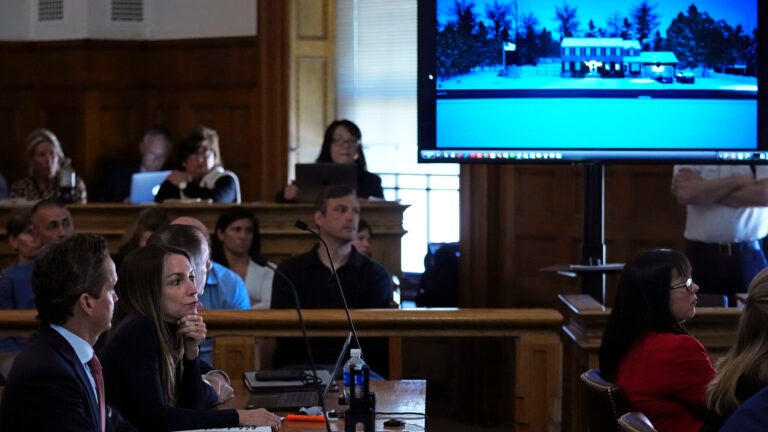
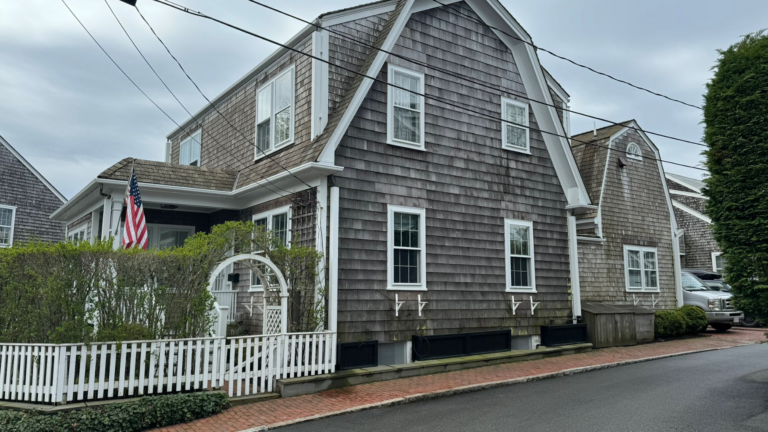

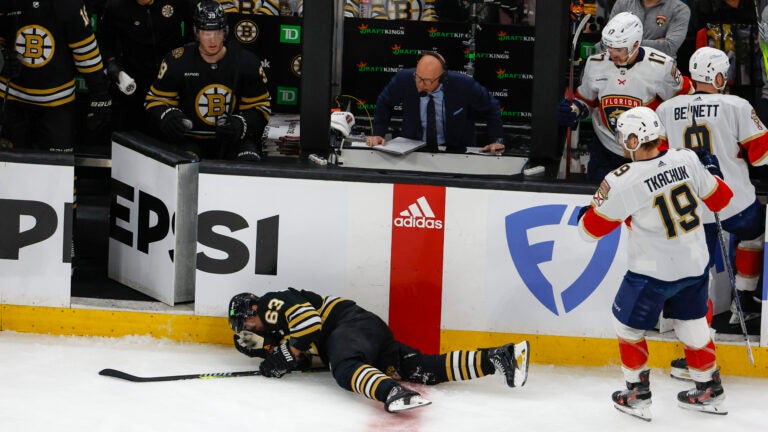

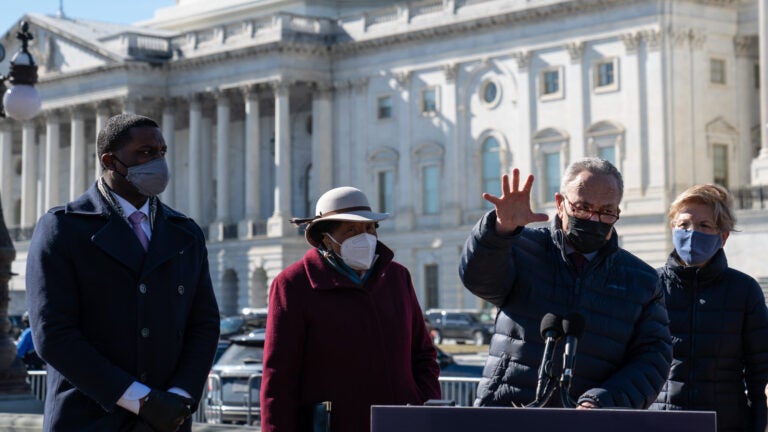
Conversation
This discussion has ended. Please join elsewhere on Boston.com